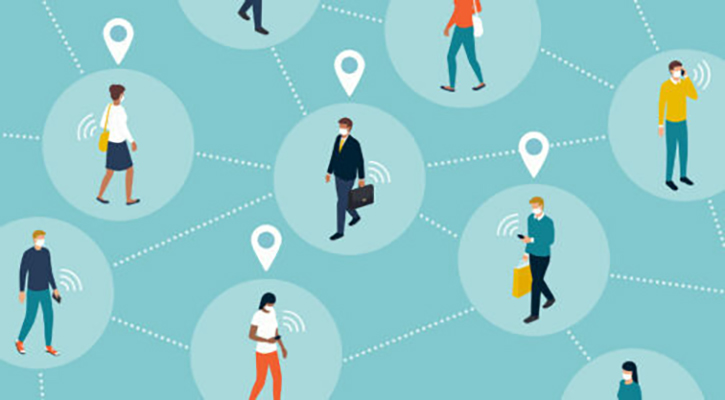Will Brits use a track-and-trace app?
With the opening of gyms, beauty salons and pubs, British society is tentatively emerging from lockdown. After months of restrictions, more and more of us are reacquainting ourselves with much-loved aspects of daily life.
However, with greater freedoms come greater risks. Both the government and the public are keen to maintain control of the virus to avoid a second wave.
One tool that could be used to support the easing of lockdown restrictions, that is yet to be rolled out despite testing, is some form of track-and-trace app, designed to let people know if they have been in close contact with someone who has tested positive for Covid-19.
As part of a broader research project on public understanding of and support for Artificial Intelligence (AI), Zinc Network has found that while the majority would use a track-and-trace app (54%), this does not come without its complications.
The issue of privacy
Privacy was the primary concern regarding any app, with 92% of respondents expressing some anxiety about how their data would be used. 72% were concerned about how securely personal data would be stored, while 63% expressed concern that personal data would be used for purposes other than fighting Covid-19.
Consequently, 31% of respondents said they would only use a decentralised track and trace app, where the UK government had no access to their data.
Older and younger respondents were least likely to reject the app over privacy concerns and were more comfortable with the government using their data to model the spread of the virus. Just 19% of those aged 18-24 and 15% of those aged over 65 rejected the app on privacy grounds, compared to around a quarter in other age groups.
It’s perhaps unsurprising that these groups are most open to solutions that could impact their privacy, given the effect of the pandemic on their lives. Young people have endured a lack of social contact with friends and vastly changed educational experiences. They also face bleak job prospects. Older respondents, meanwhile, are the most vulnerable to the virus and are more likely to be living with greater restrictions due to shielding.
Who to trust?
The NHS is shown to be the most trusted institution to implement any track-and-trace app, with 63% of respondents saying they trust the health service. Moreover, devolved bodies were trusted over the UK government to implement the app, with respondents expressing a clear preference for a regional model.
Our research indicates support for an app lies at the threshold for it to be effective, but suggests this support is fragile. For an app to be successful, users’ privacy concerns must be addressed, and middle-aged users may need particular encouragement to use it.
Experiences of coronavirus and the lockdown have varied sharply depending on age, income, ethnicity and region – and these research findings show how attitudes vary among different groups. As lockdown restrictions are eased, they underline the complexity of the challenge the government faces at this critical stage.
Notes on method
Fieldwork was conducted on behalf of Zinc Network by Populus, using an online methodology. Questions were asked to a sample of 1,093 people, weighted to be nationally representative of age, gender and region. Fieldwork took place on June 22nd and 23rd 2020. The margin of error at a total level is ± 3 percentage points. All differences against the total that have been flagged in the report are statistically significant.

